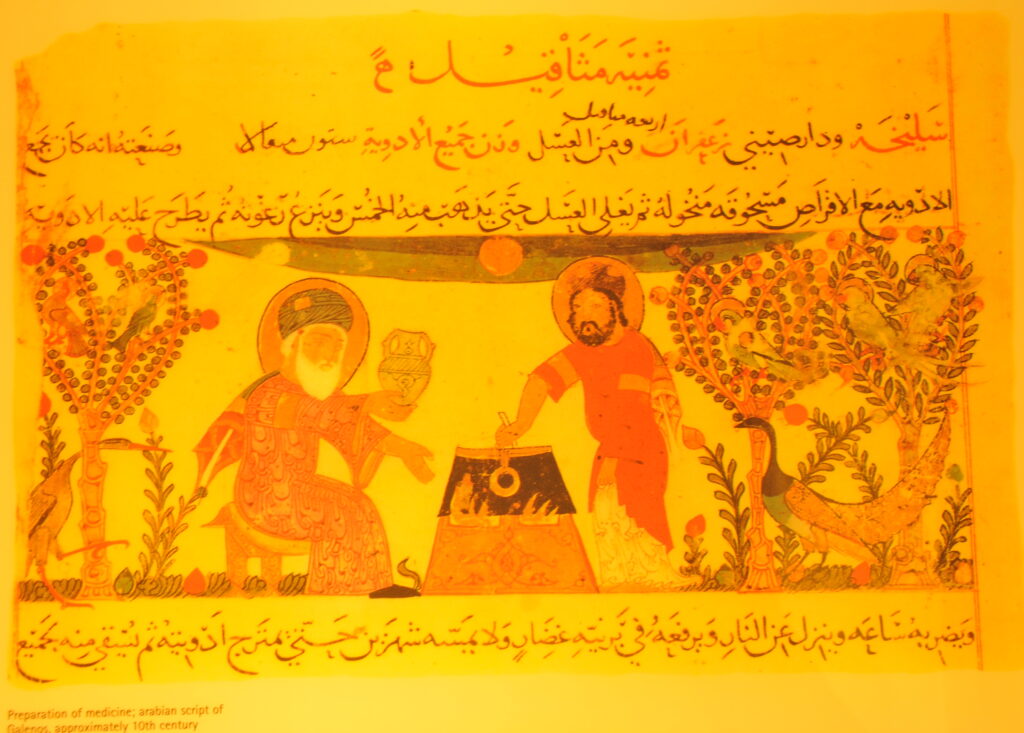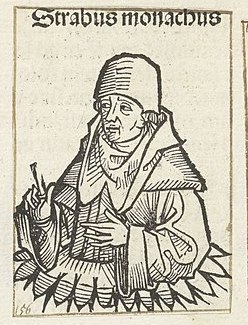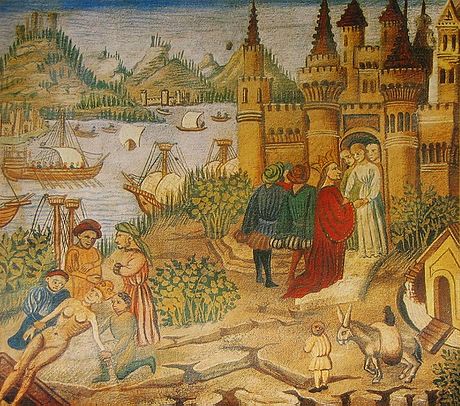Specialty pharmacies are vital and integral to a life with a bleeding disorder. But do you know the origin of pharmacies? I visited the Pharmacy Museum in Heidelberg, Germany once, and wanted to share what I learned.

The word “pharmacy” comes from the Greek word pharmakon, meaning medicine, poison, or magic potion! Long ago, diseases were often regarded as punishment by the gods, so priests as well as physicians practiced the art of healing.
Ancient beliefs about disease led to tailored methods of treatment. For example, in the miasma theory, it was believed that “bad air” caused disease, and treatment might be to avoid poorer places, which smelled bad, or to go to the country if possible for fresh air. From the ancient Greeks came the notion of the four “humors”—blood, yellow bile, black bike and phlegm. If these were not in harmony, a doctor might practice “bloodletting”—slicing open a vein to allow the bad humors to drain out.
Arabian Islamic Medicine: First Pharmacies
During the rise of the Arab empire, which covered much of North African in the mid-7th century, the Arabs dominated from Seville to Samarkand, and from Aden to Tbilisi. They translated ancient texts of Jewish, Indian and Persian origin. The combination of antique and Arabian knowledge initiated an amazing era of medicine, which considerably expanded medical treatments.

In fact, the first pharmacies emerged in Baghdad, then the center of the Islamic world!
Pharmacies in the Christian Occident
After the downfall of the Roman Empire in 455 AD, medicine was practiced in the monasteries and convents of the Christian west. Educated monks and nuns worked there both as doctors and pharmacists. Some, like Walafrid Strabo (c. 809-849) and Saint Hildegard of Bingen (c. 1098-1179), increased medical and pharmaceutical knowledge with their scripts. Medicinal plants were grown in the monastic gardens. St. Hildegard has been considered by scholars to be the founder of German scientific natural history. And Strabo learned to create medicine, and brew beer!
Relevant antique scripts were kept, studied, and copied in the monasteries, including those of Islamic medicine. So both ancient and Islamic texts had a lasting influence on the creation of a future western pharmacy.
The medical school of Salerno in Italy, Schola Medica Salernitana, taught antique medicine, kept close contact to the Arabian world and is considered to be the first center of scientific medicine in the west. Clerics and laymen, and Christians and Muslims met at this school which was open to everyone—even women!

Next week: The Beauty of Pharmacies in the West
Source: Notes from a visit to the German Pharmacy Museum, 2016

